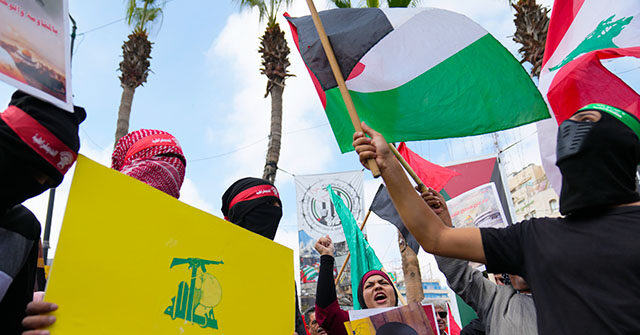On Monday’s segment of MSNBC’s “Chris Jansing Reports,” NBC News Foreign Correspondent Matt Bradley addressed Israel’s recent military actions in Lebanon, specifically its strikes on banks associated with Islamic banking institutions. He elucidated that these banks play a significant role in providing charitable donations and financial assistance to ordinary people, especially within the Shiite Muslim community, which predominantly supports Hezbollah. Bradley pointed out that while the banks serve a broad demographic, their links to Hezbollah—an organization that heavily relies on Iranian funding—make them a target for Israeli military action. He noted that the U.S. had previously sanctioned these institutions as far back as the early 2000s.
Bradley elaborated that the motivations behind these Israeli strikes appear to be rooted in a strategic effort to undermine Hezbollah’s financial infrastructure. He emphasized that these banks, operating on Islamic terms without interest, became crucial to many individuals following Lebanon’s 2019 financial crisis. Consequently, the Israeli government believes that cutting off financial support to Hezbollah would significantly impact the group’s capacity to operate and maintain its influence. This move marks a shift in Israeli tactics; rather than exclusively targeting Hezbollah’s military apparatus and leadership, Israel is now extending its operations to include humanitarian and financial institutions that are integral to the Lebanese population.
The Israeli strategy reflects a calculated response to emerging threats posed by both Hezbollah and Iranian influence in the region. Bradley discussed how these strikes are indicative of a broader military strategy aimed at not just weakening Hezbollah but attempting to dismantle its very foundations. The Israeli military seems determined to avoid previous shortcomings where targeting the group’s leadership did not yield lasting results. By expanding their operations to vital institutions such as healthcare facilities and financial systems, they aim to deliver a blow to Hezbollah’s operational capacity on multiple fronts.
According to Bradley, this vigorous approach signals an intention by Israel to thoroughly eradicate Hezbollah’s presence in Lebanon, rather than merely incapacitating its leadership. This represents a significant escalation in Israel’s military agenda, characterized by a comprehensive strategy intended to prevent the resurgence of Hezbollah, which has often proven resilient in the past. The assertion that Israel seeks to “kill the whole snake” rather than just cutting off its head underscores their desire to approach this conflict in a fundamentally different way than previous engagements.
Bradley’s commentary informs viewers that these strikes are not just about military engagement but also carry broader implications for the Lebanese populace who depend on these institutions for support. The collateral damage of targeting financial and medical institutions raises ethical questions regarding the humanitarian impact of such military actions in Lebanon. Given the acute economic crisis Lebanon is enduring, the repercussions of damaging essential services can exacerbate an already dire situation for many civilians who are not necessarily part of Hezbollah.
In conclusion, the ongoing conflict elucidates the complex interplay between military action and the realities of humanitarian needs in Lebanon. Bradley’s report stresses that Israel’s renewed focus on dismantling Hezbollah’s entire support network may significantly alter the landscape of the conflict. As Israel continues its campaign, it must also contend with the humanitarian implications of its strategies on the ground, underlining the intricate balance between national security objectives and the welfare of ordinary Lebanese citizens reliant on these once-sacred institutions. Ultimately, if the strikes persist, the long-term consequences for both Hezbollah’s operations and the Lebanese populace will be far-reaching, shaping the future of regional stability and security.

